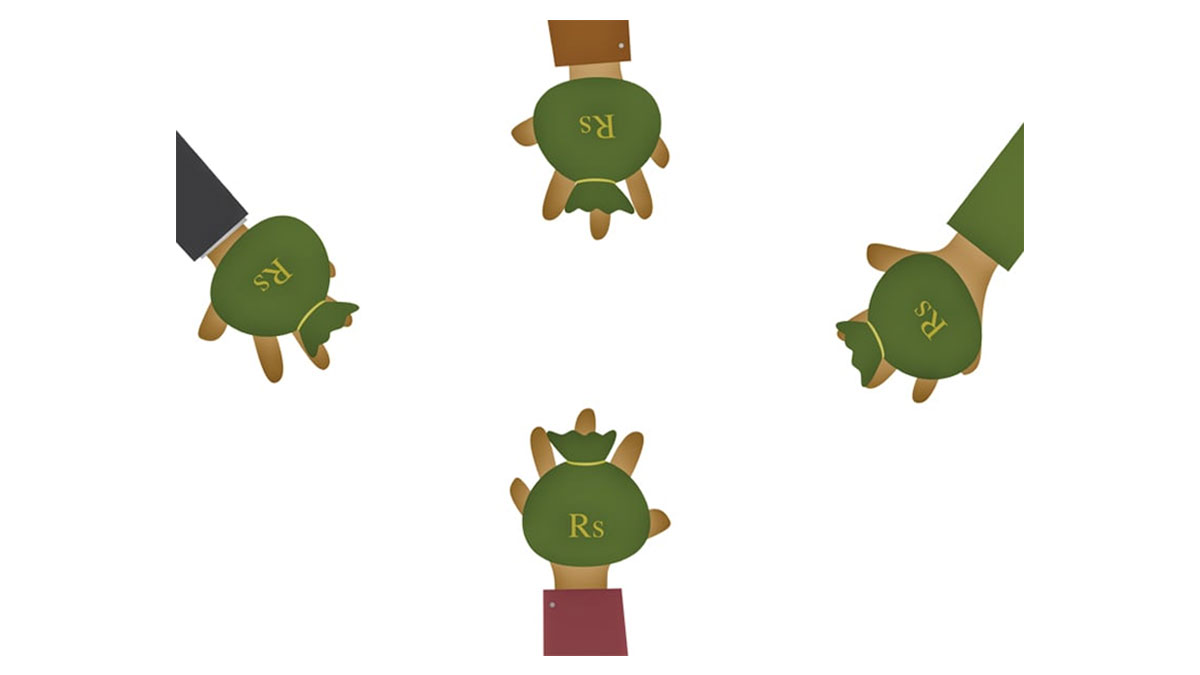Pakistan is primarily a consumption-driven economy, with savings accounting for only 4.5 percent of GDP. This figure places us well behind the South Asian average of 28 percent and the low-income group’s 23 percent.
However, these statistics frequently overlook the vast informal economy that most people in the country rely on due to the limited reach of existing financial institutions.
A rotating savings and credit association (ROSCA), also known as a committee, is a group of people who agree to meet for a set period of time to save and borrow money together, essentially combining peer-to-peer banking and peer-to-peer lending.
According to Oraan’s research, approximately 41 percent of Pakistanis saved through committees (or Rosca), whereas Karandaaz puts the figure at 34 percent. Assuming that the informal economy accounts for roughly 30% of GDP, as suggested by research from the Pakistan Institute of Developing Economics, this translates into annual committees of Rs4 trillion at base prices and with conservative inputs.
While this back-of-the-envelope calculation is far from scientific, it helps put the informal savings market into context. Committees are used by everyone from a widow trying to save for her children’s education to young adults trying to save for their marriage.
This is not a Pakistan-only phenomenon. According to Middle East Venture Partners (one of Bykea’s investors), “the global market is largely untapped and ripe for disruption, with 2.4 billion people using traditional money circles.”
They recently took part in the $31 million Series B round of Egyptian digital committees’ start-up Money Fellows.
Read More: Pakistan hopes to acquire $32 billion loan this year
Aside from the general apathy of traditional financial institutions toward the customer, committees appeal to the average Pakistani for several reasons: they are a community-based instrument with some flexibility, and there is no interest involved.
Most importantly, it improves their cash flow management due to habitual change. Because former financial services are largely inaccessible to women, the product is especially popular with them.
However, because committees are primarily cash-based, with virtually no money trail involved, they pose significant risks, as demonstrated recently when a girl, Sidra Humaid, who ran a network of committees via social media, defaulted on Rs420m on payments.
The scale of the fraud probably puts Anuradha from Lakshmi Chit Fund to shame. Hundreds of families have lost their hard-earned money, as well as the ability to pay for a university admission fee or a long-overdue home renovation. Courts, due to their informal nature, may also be out of the question.
Even beyond that, committees have flaws by design, which are exacerbated by Pakistan’s macros. For example, the person who receives the first lump sum amount will always be at an advantage because their subsequent monthly instalments will be worth less due to both inflation and rupee depreciation. The last payment’s purchasing power would have been significantly eroded by the time the recipient received it.
Furthermore, because the product is community-based, the risk of network default is higher because people with similar risk profiles are pooling their money.
For example, if an organization’s employees run office committees, delayed salaries or layoffs within the organization would create a bad equilibrium, resulting in losses for the rest of the group and, in many cases, default.
However, there are solutions to some of these issues. To begin, you can join a committee for up to 10 months to (partially) protect your lump sum from depreciation or devaluation. Given Pakistan’s recent macros, you’d still lose money in real terms, but that’d be the case with any other instrument, including risk-free government papers.
In fact, contrary to popular belief, there are ways to further alleviate the inflationary pressures. Digital committees can make the experience more fun by rewarding good payment behaviour with loyalty programmes and/or brand partnerships that provide discounts on utilities-related services and products.
Second, digital committees aid in the creation of a money trail, which, when combined with a centralized authority (the platform itself), brings accountability and recourse in the event of a default. The receipt and/or ledger aid in basic accounting in committees, providing transparency to members of the group.
The third advantage of digital committees is security. To create an overall environment for responsible finance, the participant must go through a know-your-customer and credit check process to ensure there is no fraudulent behaviour that could negatively impact the group, as well as the participant’s ability and willingness to pay.
Read More: What Happens When A Country Defaults?
It’s not uncommon to see finance professionals dunk on committees with a typical whiff of arrogance, and the arguments are not without merit from a purely mathematical standpoint. However, the reason the average individual prefers committees over stocks or funds is due to the incompetence of those same finance professionals.
People might not have turned to Sidra Humaid if they had spent a little more time making financial services available and less time leaching off government bonds.

















